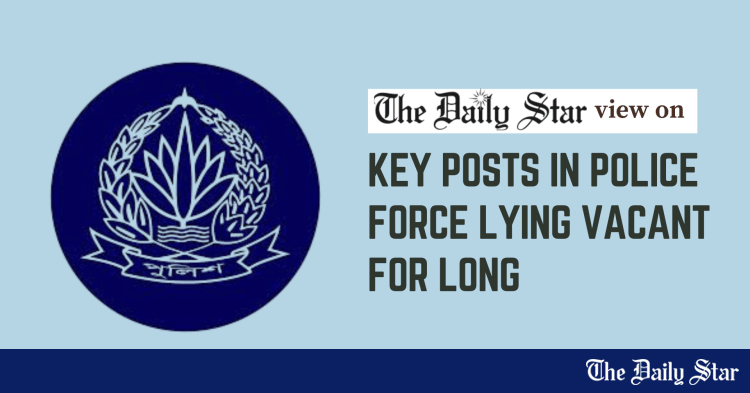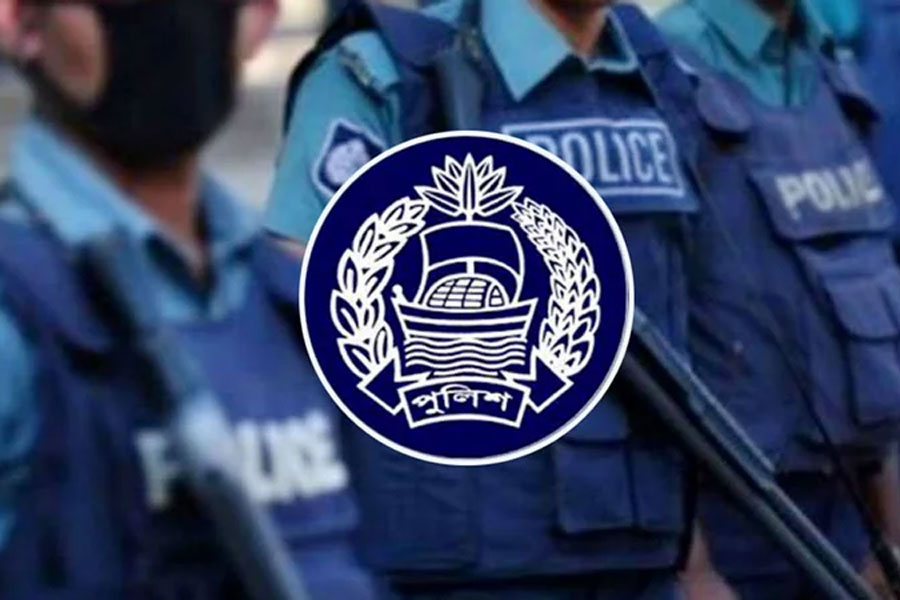Saif
Senior Member
- Joined
- Jan 24, 2024
- Messages
- 15,397
- Reaction score
- 7,874
- Nation

- Residence

- Axis Group


Reinforce the police without delay
Prolonged vacancies, personnel issues in the force must be addressed
Reinforce the police without delay
Prolonged vacancies, personnel issues in the force must be addressed
It is disheartening to learn that more than 400 key posts in the police force remain vacant or effectively non-functional, thus hindering its operational effectiveness and overall capacity to combat crime. Among the vacancies are at least 424 vital positions, including nine for additional inspector general of police (IGP) and 34 for deputy inspector general (DIG). There are also two vacancies for additional DIG, 47 for additional superintendent of police (ASP), and 332 for assistant SP. Besides, 119 top and mid-level officers—including DIGs, additional DIGs, and SPs—have been "attached" to various units without specific responsibilities, limiting their duties to office attendance and routine paperwork.
Police have been further weakened by a wave of forced retirements following the 2024 uprising that left over 1,400 people dead, many in police shootings. This was more or less expected, as the interim administration sought to hold accountable those involved in the brutalities. In fact, such disciplinary measures have long been overdue given the force's widespread involvement in corruption and excessive use of force during Awami League's 15-year rule, when police were routinely used to suppress dissent through arbitrary arrests, torture, extrajudicial killings, etc. By one estimate, at least 40 police officers with 25 years of service have been sent into forced retirement in recent months, while 23 officers with the ranks of ASP and above have been arrested in cases related to the uprising. There have also been notable instances of absenteeism.
The police force stands weakened by the cumulative effects of all these factors. Although it has performed relatively well in maintaining security during the recent Eid and puja festivals, any sense of complacency would be misplaced. The statement given by a top officer—that police are "ready and capable of facing any situation"—seems more a PR exercise than a reflection of reality, especially when seen against the backdrop of rising crime rates in general, the growing list of unresolved murders, or the lack of pre-emptive interventions. During recent visits to six police stations by our correspondents, locals have complained that officers often delay interventions and avoid recording complaints unless a crime draws public attention. Clearly, there is a need for urgent reinforcements and recalibrations. And existing bottlenecks are only hindering the progress.
Unfortunately, the problem of delaying key postings and promotions is not limited to the police force alone. The government, according to another report by this daily, has yet to appoint new deputy commissioners (DC) in around half the districts across the country, thus delaying critical field-level governance and electoral preparations ahead of the February election. As DCs serve as returning officers, any prolonged delay in their appointment could have serious implications for election management. Security and election preparations are also intrinsically related.
It is, therefore, important that the government acts swiftly both to reinforce the police force and to fill key administrative positions, before the combined effects of these delays start to threaten national stability and public confidence. The police headquarters, in particular, must resolve the personnel issues without delay.
Prolonged vacancies, personnel issues in the force must be addressed
It is disheartening to learn that more than 400 key posts in the police force remain vacant or effectively non-functional, thus hindering its operational effectiveness and overall capacity to combat crime. Among the vacancies are at least 424 vital positions, including nine for additional inspector general of police (IGP) and 34 for deputy inspector general (DIG). There are also two vacancies for additional DIG, 47 for additional superintendent of police (ASP), and 332 for assistant SP. Besides, 119 top and mid-level officers—including DIGs, additional DIGs, and SPs—have been "attached" to various units without specific responsibilities, limiting their duties to office attendance and routine paperwork.
Police have been further weakened by a wave of forced retirements following the 2024 uprising that left over 1,400 people dead, many in police shootings. This was more or less expected, as the interim administration sought to hold accountable those involved in the brutalities. In fact, such disciplinary measures have long been overdue given the force's widespread involvement in corruption and excessive use of force during Awami League's 15-year rule, when police were routinely used to suppress dissent through arbitrary arrests, torture, extrajudicial killings, etc. By one estimate, at least 40 police officers with 25 years of service have been sent into forced retirement in recent months, while 23 officers with the ranks of ASP and above have been arrested in cases related to the uprising. There have also been notable instances of absenteeism.
The police force stands weakened by the cumulative effects of all these factors. Although it has performed relatively well in maintaining security during the recent Eid and puja festivals, any sense of complacency would be misplaced. The statement given by a top officer—that police are "ready and capable of facing any situation"—seems more a PR exercise than a reflection of reality, especially when seen against the backdrop of rising crime rates in general, the growing list of unresolved murders, or the lack of pre-emptive interventions. During recent visits to six police stations by our correspondents, locals have complained that officers often delay interventions and avoid recording complaints unless a crime draws public attention. Clearly, there is a need for urgent reinforcements and recalibrations. And existing bottlenecks are only hindering the progress.
Unfortunately, the problem of delaying key postings and promotions is not limited to the police force alone. The government, according to another report by this daily, has yet to appoint new deputy commissioners (DC) in around half the districts across the country, thus delaying critical field-level governance and electoral preparations ahead of the February election. As DCs serve as returning officers, any prolonged delay in their appointment could have serious implications for election management. Security and election preparations are also intrinsically related.
It is, therefore, important that the government acts swiftly both to reinforce the police force and to fill key administrative positions, before the combined effects of these delays start to threaten national stability and public confidence. The police headquarters, in particular, must resolve the personnel issues without delay.




